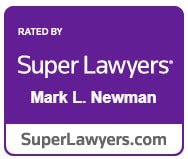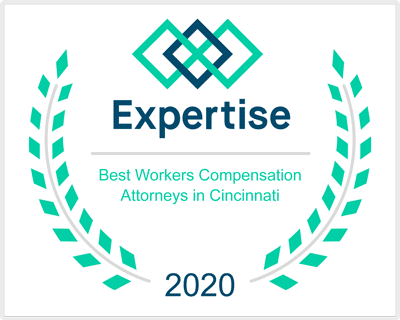
Step 3 of SSDI Reconsideration – The Hearing
If you are thinking about filing for SSD, it is important to understand stage 3 of the Social Security Disability Insurance claims process: the SSDI Hearing. This is often considered a critical step in pursuing disability benefits from the Social Security Administration, but the cycle of an SSD claim can be quite lengthy, so having a basic understanding of each step will be helpful.
This article will review the third step of the SSDI process. This stage is referred to as the Hearing or 2nd Appeal.
If you receive a notice that your request for reconsideration of your Social Security disability claim has been denied (Stage 2) and you want to appeal again, you must request a hearing before an administrative law judge (ALJ). You have 60 days from the date of your denied reconsideration to request this hearing.
You can see why this is a long process – appeals, 60-day deadlines, and more appeals.
What is Step 3 of the Social Security Review Process?
As mentioned above, the SSDI hearing is your opportunity to present your case before an administrative law judge (ALJ) after your request for reconsideration has been denied. At this point, the SSA has already reviewed your medical condition and supporting documentation twice—during the initial application process and the reconsideration decision phase. If your claim has been denied both times, the hearing is your chance to provide further evidence and clarify any misunderstandings.
When you request a hearing, your case will be reviewed by an ALJ, who are attorneys that work for the SSA’s Office of Hearings and Appeals. They can do one of three things:
- Approve your claim
- Send your case back for review, or
- Deny your claim.

How to Request a Disability Hearing in Front of an ALJ
There are three ways that you can apply to request an SSDI hearing in front of a judge:
- Online
- Sending in completed forms to your local Social Security office, or
- Writing a letter to your local Social Security office.
You must request a hearing in writing in one of the above ways.
How Long Does it Take to Get a Hearing for Disability?
After you submit your request for a Social Security hearing, you should expect it to take several months or even over a year for your case to be scheduled. This delay is due to the high volume of SSDI cases awaiting administrative review.
While waiting, it’s important to continue receiving medical treatment and keep detailed records of your condition.
What Happens at a Social Security Disability Hearing?
At the hearing, you must appear in person and argue why you deserve a medical-vocational allowance. The primary goal at this stage is to deny the claim or issue a favorable or partially favorable determination and award Social Security disability benefits to the claimant.
There are several items to note that are unique at a Level 3 hearing and why you should have a qualified Cincinnati Social Security Disability lawyer like Mark Newman present with you at this level. This is a legal hearing and while less formal, there is still protocol to follow. Your attorney can help present legal arguments, ensure the hearing runs smoothly, and provide guidance on addressing the judge’s inquiries.
Here are some key takeaways regarding the SSDI hearing process:
- You can and should be present, along with your attorney or representative, and you will provide testimony regarding your condition. Your attorney can assist you in answering questions from the judge.
- Other witnesses can also be present, such as a medical or vocational expert. The medical expert evaluates your medical records and provides insight into your condition, while the vocational expert discusses how your limitations affect your ability to perform past work or other potential jobs. These expert witnesses answer questions posed by the judge, and your legal team can cross-examine them to address any points of contention.
- You can submit additional evidence, which should have been submitted within ten days of the date that you filed the request for a hearing. If you are not able to submit your new medical evidence within that time frame, you may request an extension from the ALJ to submit the new evidence.

How Long Does it Take For a Judge to Make a Decision on Disability?
First, the good news. At this stage, most cases are actually approved. In fact, approval rates average about 67%. However, the average length of time to go through this Stage 3 appeal is almost 12 months. The hearing process can take quite a bit of time to get through, but if you have the time, desire, and assistance, it also provides the highest chance of having your Social Security disability claim approved.
Can You Get Approved for Disability Before Your Hearing?
It is possible to get approved for disability benefits before your hearing. If you submit strong medical evidence and documentation during the initial application or reconsideration decision stages, the Social Security Administration may approve your claim without the need for a hearing.
Certain cases, such as those meeting compassionate allowance criteria, may also qualify for expedited approval.
I Won My Social Security Disability Hearing – Now What?
After the hearing, the Administrative Law Judge will consider all the evidence and testimony presented and he or she will render an independent written decision, of which you will receive a copy within one to two months following the hearing date. If your claim is approved, you will receive both a Notice of Decision and a Notice of Award, meaning you will begin receiving disability benefits, including back pay for the period between your initial application and the approval date.
However, if the ALJ denies your claim, you still have options.

What Happens if Your SSDI Claim is Denied at the Hearing?
If your SSDI claim is denied after the Social Security Disability hearing, you can move to the next Stage – Appeal #3, the Appeals Council. The Appeals Council will examine whether the administrative law judge made an error during the hearing or failed to consider key evidence. If the Appeals Council denies your request or upholds the ALJ’s decision, your final option is to file a lawsuit in federal court.
For Legal Assistance With Your Claim, Call Cincinnati SSDI Lawyer Mark Newman Today
Are you starting to see why this process is so lengthy? Each step, from filing your initial application to navigating the appeals process to (hopefully) receiving a favorable decision, requires careful preparation and patience. For more information on Stage 3 of the Social Security Disability claims process, including the SSDI hearing, click here.
Having an experienced attorney like Mark L. Newman on your side can make all the difference in your SSDI case, helping answer any further questions, presenting a strong case, and keeping the process on track so you can ultimately receive benefits without unnecessary delays. To get in touch, call (513) 533-2009 or reach out online to schedule a consultation with Attorney Newman today.




